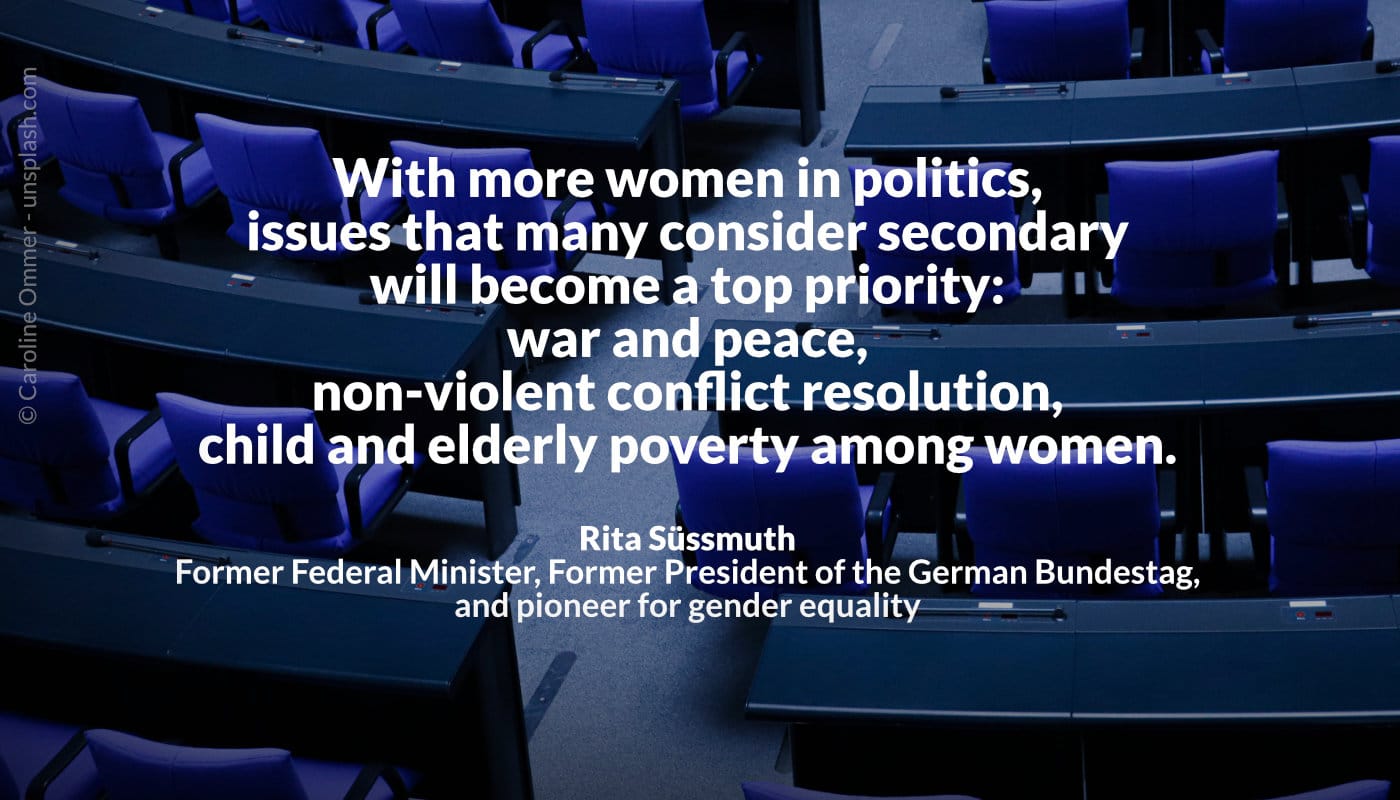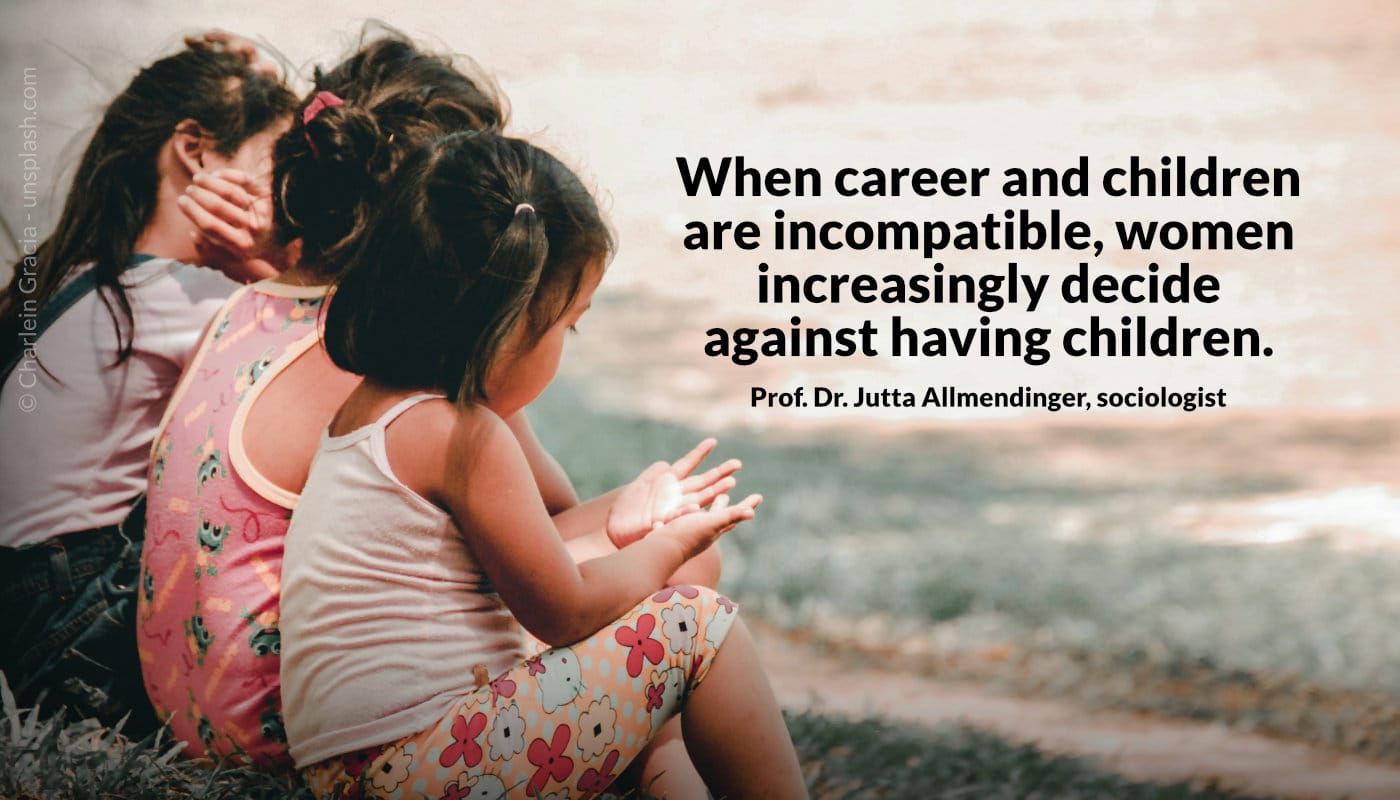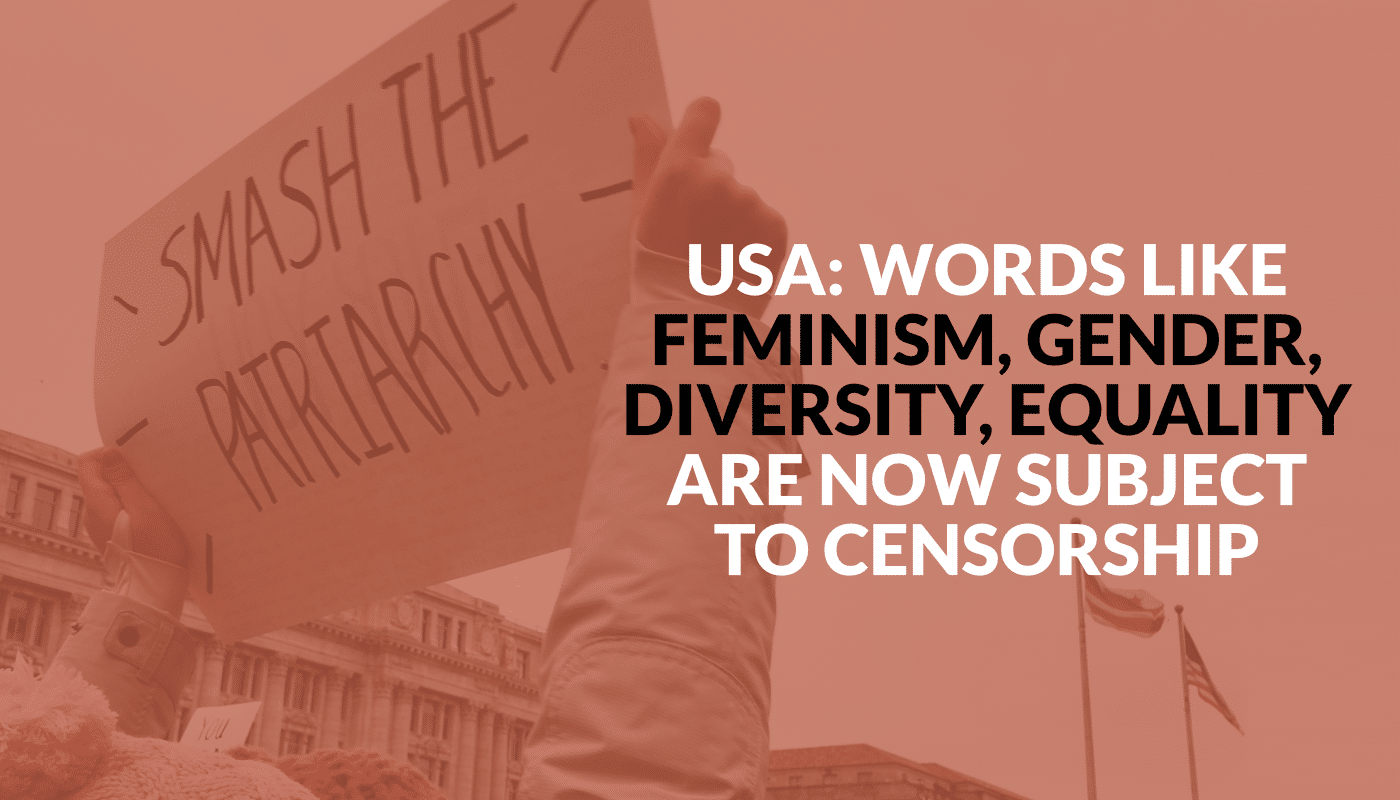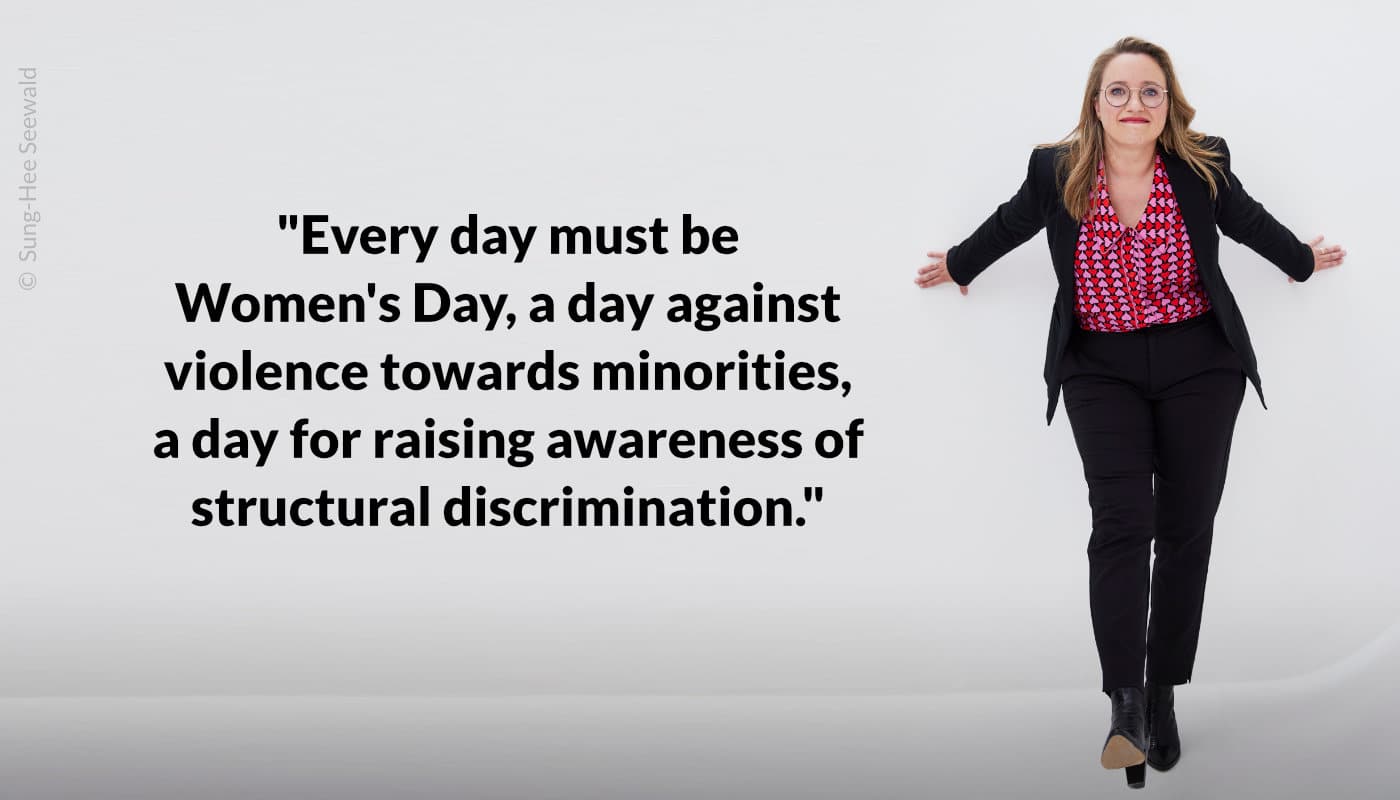“Should most people have children?” An unusual question posed by the polling institute Ipsos. The survey found that in Germany, nearly two-thirds of men (59%) answered yes to this question, while only one-third of women (33%) agreed.
“Experts see a crucial reason for the differing responses in the fact that children still tend to impact women more heavily. While a child’s birth also fundamentally changes a lot for men, essential foundations of their lives often remain more stable than for most women,” states the press release.
Childless women often express concerns about not being able to handle the “task of having children”—especially when they see the immense overwhelm faced by young mothers within their circle. Societal expectations and the structural conditions make it difficult for women to reconcile the desire for a self-determined life with the desire for children. “No matter what a woman does, she’s wrong—and the term ‘Rabenmutter’ (bad mother) exists only here,” says Cologne psychologist Petra Jagow.
At herCAREER and in interviews, authors Patricia Cammarata (“Out of the Mental Load Trap,” “Breaking the Mold: Surprising Solutions for True Gender Equality”) and Anne Theiss-Berlinger (“The Devaluation of Mothers”) discussed structural conditions and role distributions.
“Two people decide together to start a family. Then the responsibilities can also be shared in a way that’s fair,” says Cammarata. “Research shows that we start family life with high hopes for equality. Then, gradually over months and years, we slide into more traditional roles. (…) The key, as simple as it sounds, is to plan ahead. This includes the division of parental leave, but also: What does the rest of the caregiving work look like?” In the peak phase of life, women carry out 111% more caregiving than men.
Theiss advocates bringing companies along in the journey toward gender equality and making them realize that they cannot afford to overlook the potential of mothers. “It’s presented to young women today as a given: You can have it all. Then they become mothers, and it becomes not only economically harder to stay on the path they want but also socially.” The social pressure is particularly strong in Germany.
This aligns with another result from the IPSOS survey: On average across Europe, only 53% of men thought most people should have children, compared to 39% of women.
Theiss hopes for more understanding of women’s individual life paths and for solidarity among women in light of efforts to bring old role models back into the center of society. “It’s always better to walk your own path with confidence, free from any norms.”

Posted by Natascha Hoffner, Founder & CEO of herCAREER, WiWo columnist, LinkedIn TOP Voice 2020, W&V 2019 – 100 Köpfe
published on LinkedIn on 13.11.2024
References:
- https://www.sueddeutsche.de/wissen/umfrage-kinder-sind-ein-muss-meinen-mehr-maenner-als-frauen-dpa.urn-newsml-dpa-com-20090101-241108-930-28269
- Interview with Anne Theiss-Berlinger at herCAREER: https://www.linkedin.com/pulse/die-wirtschaft-braucht-m%25C3%25BCtter-natascha-hoffner-tmvoc/?trackingId=ueFP5Q9tTFqPVe9SRResvA%3D%3D&trk=public_post_comment-text
- Interview with Patricia Cammarata at herCAREER: https://www.linkedin.com/pulse/gelebte-gleichberechtigung-ist-kontinuierliche-arbeit-hoffner-wnebf/?trackingId=facfjPeHRUOGT2YWfJVQaA%3D%3D&trk=public_post_comment-text












